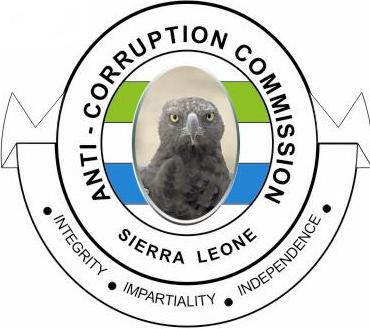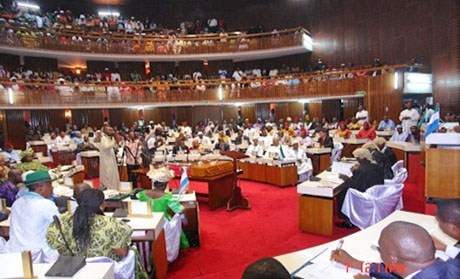The Sierra Leone Civil Service and the fight against corruption
President Barack Obama in his July 2009 tour of Africa stated in Ghana that Africa no longer needs strong men but strong institutions. I could not agree more with him. For a country to make significant breakthrough in economic, social and political developments, its institutions must be solid. Comparatively, the preponderance of poverty in African countries is worrisome. In my opinion, it is because most African countries gave corruption such a leeway that it has done significant damage to the continent. African leaders, generally, have made few proactive moves in pitching in with the fight against corruption.
During its first term in office, President Ernest Bai Koroma’s led government made a giant leap in the fight against corruption. In 2008, the old Sierra Leone Anti-Corruption Act was repealed and replaced with one of Africa’s most robust graft laws. That was a brilliant initiative from the President. Our generation witnessed an epoch in the history of rebuilding our institutions from weaker to stronger ones. We witnessed an era of movement from mere pronouncement of public policies to affirmative action and implementation of such policies. The fight against corruption was revitalized. Despite such a rebirth of Government’s commitment, corruption still continues to be a deterrent to our socio-economic and political development. The President having set the pace, other arms of the executive should also consciously and genuinely play an active role in curbing corruption in Sierra Leone. One of these arms of the executive is the civil service. It is no secret that the civil service of any given country in the continent must assume the lead role in curbing corruption. It is also a fact that governments may come and go but individuals in the civil service may continue to be in active service for a lengthy period of time regardless of what party is in governance.
In Sierra Leone, the civil service comprises the executive arm of government that involves all employees of government, whether permanent or on contracts that advises ministers and also implements decisions and policies formulated by government or enacted by parliament. In the process of executing its mandate the civil service needs to be guided by values of high morals. It should create a platform upon which the government could execute its functions with high level of integrity. Among the principles of the Sierra Leone civil service code include: impartiality, professionalism, selflessness, integrity, transparency and accountability.
In carrying out their public functions, civil servants should not display partiality. Being partial is a red light for corruption. Some of the variables that breed partiality are family ties, gender, religion, ethnic background and party politics. In Sierra Leone, the common form of partiality is by aligning oneself or being faithful to a political party. Such attitude in my opinion has trickled down to the civil service as well. Partiality, I presume, is such a contagious plague in Sierra Leone that even when people take the universal colour black for white they will still have a large following in that line not because they are right, but because one of them believes so. The civil service as an institution should be devoid of political affiliation. Its loyalty should be to the State and not to any individual or group of individuals. Above all, it shall at all times diligently serve the government of the day and its people.
The civil service is a professional institution and professionalism must be prevalent in every sector. As humans, we are all coming from different backgrounds and affiliations. At times the decisions we take are either directly or indirectly guided by our background. No matter what, as civil servants the decisions we take must not be subjective but objective. A safe way to sail through the issue of subjectivity and objectivity is by putting the interest of the State above all else at all times. Moreover, in the discharge of duties, civil servants must exhibit a high degree of competence and best practice. If professionalism is lacking in an institution that is the hub of governance, it will be very difficult to tackle corruption.
On the issue of impartiality as above, the civil service should also be a selfless institution. In other words, civil servants shall take decisions that border around the best interest of the country. Decisions should not be taken with an intention to gain material or financial remuneration for self, family, friends or any other affiliation.
Integrity should be the watch word of every civil servant. If you cannot uphold your integrity to the highest level, the civil service is not a place for you. That institution should be one laden with people of integrity. Integrity should not only be limited to one’s professional life but also to one’s personal life. Civil servants should drink, eat and sleep integrity all the time. With such positive attitude, corruption will be scared away from our civil service.
If one is transparent and accountable for one’s actions, then one could boast of living an upright life-a life with integrity. That is exactly what should constitute the civil service. In handling public resources for example, corruption should not be allowed to prevail. Corruption will never make headway wherever there is transparency and accountability. Civil servants should be personally and institutionally accountable to the government who is the employer and the public who is the customer.
Constitutionally, the mandate of leading the fight against corruption rests with the Anti-Corruption Commission. Leadership does not certainly mean to be in front all the time. At times it is necessary to lead from behind. As the axiom goes that: “A leader is like a shepherd. He stays behind the flock, letting the most nimble go out ahead, whereupon the others follow, not realizing that all along they are being directed from behind.” That is the kind of leadership role I presume the Anti-Corruption Commission is mandated to play. Besides, the fight against corruption has never been and will never be the Commission’s standalone fight. If institutions like the civil service are not proactive in curbing corruption, then the Commission and the entire citizenry’s effort in this fight will be meaningless.
By: Mohammed Ali Kamara
Stay with Sierra Express Media, for your trusted place in news!
© 2014, https:. All rights reserved.





